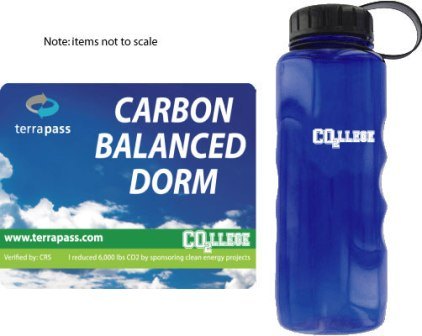Car Rental Companies Off-Set C02 for TerraPass' Profit
Environmentally-sensitive rental car customers can now drive someone else's vehicle with a clean conscious. Automotive News [sub] reports that Enterprise, National and Alamo are all set to sell "carbon offsets" with their rental contracts. The opt-in program adds $1.25 to the price of the rental. The money goes towards "carbon offset projects, such as wind farms, that reduce the amount of carbon dioxide going into the atmosphere." TerraPass, which handles the credits, estimates that every 100k customers participating will offset over 30m pounds of CO2. We called TerraPass to ask how much of the fee went directly to projects (i.e. what percentage was "absorbed" by administrative costs). Their PR rep Samantha Weeks said "We're a privately held company. We don't disclose information like that." So now you [don't] know.
More by Frank Williams


































Comments
Join the conversation
The bullshit math (hockey stick graph) of the CO2 instigated global warming aside (I do believe in global warming, I just also believe that solar output and cyclic variation in ocean currents is the cause as opposed to manmade carbon output), what EXACTLY is wrong with a warmer planet? Rising oceans and increased tropical disease is a problem. But increased food production (longer growing seasons) and decreased seasonal fuel usage (no winter heating bills) is a plus. People will adapt and adjust, as we have throuhout the ages.
PCH, Let me try to explain the difference as I see it. Even in the highly regulated car market, there are differences which make the value proposition of each choice quite different. You as the consumer assign your own value to the various aspects of the product. Under a carbon offset market, most players will want maximum carbon per dollar. However, the government will be calling the shots. Who knows how much carbon one acre of trees really grabs vs. another? The government will be assigning the value. It will be like paying for your gas using your odometer reading instead of measuring the fuel with the government assigning the miles per gallon. You may see this thing working another way, but I don't. The lawmakers will have their hands all over this thing to make sure they get big cash from all the players involved. Companies may try to market themselves as different, but I see it working much like the electric markets or air transport (which are not free, even when "deregulated"). At some point, regulation strangles innovation to the point that a market is not free. Calling it such is lying to the public, and pushing them into ignorance. Trees, Space shots are mostly expensive due to rarity. There is no reason why space flight tomorrow cannot be as cheap as air travel is today (except the government and lack of volume). One of my best friends is an honest to goodness rocket scientist, and he agrees. Maybe you can google around and find a copy of Burt Rutan's presentation at TED.
These won't be anything like tax credits, but that is not the point. Where we disagree is whether the market for carbon credits should be described as a "free market". I say no. Varying prices is an essential element of, but not a definition of a free market. In a free market, you would go buy credits, and the amount you get for the dollar would vary not only by price, but by quality or efficiency or accuracy. One company might sell you the credits of an acre of pine trees and say it's 100 credits for 100 dollars. Another might sell you the offset from using wind power to produce some energy and tell you it's 100 credits for 105 dollars. But in fact, they may or may not be ridding us of that much carbon. The buyer would have to measure. In the carbon market, the government will likely assign the amount of credits for the activity. Whether the pine is properly cared for, or the windmills are properly lubed (or whatever) will not likely make a difference because the government will have decided what each activity is worth. They will do this based on lobbying dollars and vote getting! Not by objective measures! This is VERY important. We have several markets in our country that are not free, but that are called free by people who want to destroy support for free markets, or have other agendas, or are just ignorant. The markets for air travel, health care, insurance, energy, and many other things are so overly regulated or otherwise warped that they are NOT FREE MARKETS. This may be due to necessity, nature, or government fiat. It may be bad or good. However, calling these markets free is likely worse for society than committing several felonies. Have your carbon market with my blessing, but don't call it free because it will not be. It could not be, even with a perfect government it would fail the test.